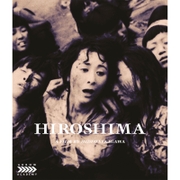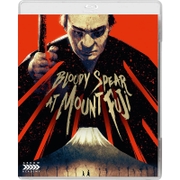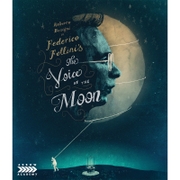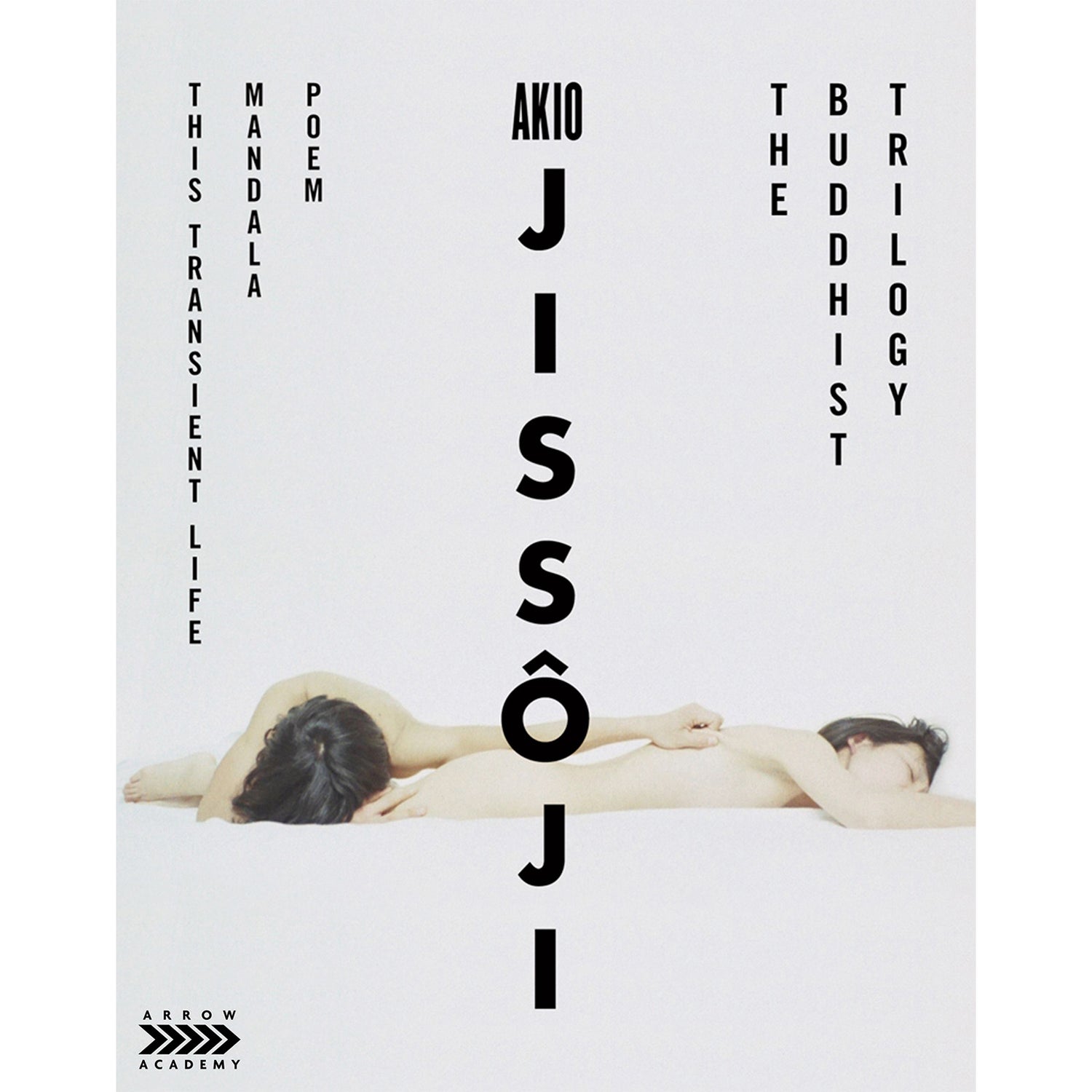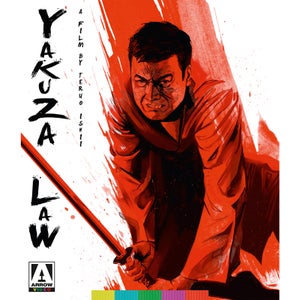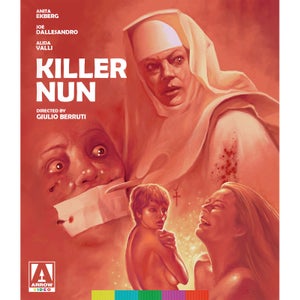Added to your cart
Sorry, unfortunately this product is currently out of stock
Other customers purchased instead
Arrow Video
Akio Jissôji created a rich and diverse body of work during his five decades in Japan's film and television industries. For some, he is best-known for his science-fiction: the 1960s TV series Ultraman and 1988's box-office success Tokyo: The Last Megalopolis. For others, it is his 1990s adaptations of horror and mystery novelist Edogawa Rampo, such as Watcher in the Attic and Murder on D Street. And then there are his New Wave films for the Art Theatre Guild, three of which - This Transient Life, Mandara and Poem, forming The Buddhist Trilogy - are collected here.
Winner of the Golden Leopard award at the 1970 Locarno Film Festival, This Transient Life is among the Art Theatre Guild's most successful - and most controversial - productions. The film concerns a brother and sister from a rich family who defy the expectations placed on them: he has little interest in further education or his father's business, instead obsessing over Buddhist statues; she continually refuses a string of suitors and the prospect of marriage. Their closeness, and isolation, gives way to an incestuous relationship which, in turn, breeds disaster. Mandara, Jissôji's first color feature, maintained the controversial subject matter, focusing on a cult who recruit through rape and hope to achieve true ecstasy through sexual release. Shot, as with all of Jissôji's Art Theatre Guild works, in a radically stylized manner, the film sits somewhere between the pinku genre and the fiercely experimental approach of his Japanese New Wave contemporaries.
The final entry in the trilogy, Poem, returns to black and white and is centred on the austere existence of a young houseboy who becomes helplessly embroiled in the schemes of two brothers. Written by Toshirô Ishidô (screenwriter of Nagisa Ôshima's The Sun's Burial and Shôhei Imamura's Black Rain), who also penned This Transient Life and Mandara, Poem continues the trilogy's exploration of faith in a post-industrial world.
Special Features
- High Definition Blu-ray (1080p) presentations of This Transient Life, Mandara and Poem
- Original uncompressed LPCM mono 1.0 audio on all three films
- Newly translated optional English subtitles
- Introductions to all three films by David Desser, author of Eros Plus Massacre: An Introduction to the Japanese New Wave
- Scene-select commentaries on all three films in the Trilogy by Desser
- Theatrical trailers for Mandara, Poem and It Was A Faint Dream
- Limited edition packaging, fully illustrated by maarko phntm
- Illustrated 60-page perfect-bound collector's book featuring new writings on the films by Anton Bitel and Tom Mes
- Arrow Academy
- 143mins approx
- Akio Jissôji
- Michiko Tsukasa
- Eiji Okada
- Kôji Shimizu
- Akiko Mori
- Ryô Tamura
- Shin Kishida
- Hiroko Sakurai
- Saburô Shinoda
- 1970
- 1971
- 1972
- 3
- A
- Arrow Academy
Akio Jissôji | The Buddhist Trilogy | Limited Edition Blu-ray
Earn 700 reward points when purchasing this product*
MSRP: $99.95
$70.00
Save: $29.95
Sold out
Live Chat
Average connection time 25 secs
Average connection time 25 secs
Arrow Video
Akio Jissôji created a rich and diverse body of work during his five decades in Japan's film and television industries. For some, he is best-known for his science-fiction: the 1960s TV series Ultraman and 1988's box-office success Tokyo: The Last Megalopolis. For others, it is his 1990s adaptations of horror and mystery novelist Edogawa Rampo, such as Watcher in the Attic and Murder on D Street. And then there are his New Wave films for the Art Theatre Guild, three of which - This Transient Life, Mandara and Poem, forming The Buddhist Trilogy - are collected here.
Winner of the Golden Leopard award at the 1970 Locarno Film Festival, This Transient Life is among the Art Theatre Guild's most successful - and most controversial - productions. The film concerns a brother and sister from a rich family who defy the expectations placed on them: he has little interest in further education or his father's business, instead obsessing over Buddhist statues; she continually refuses a string of suitors and the prospect of marriage. Their closeness, and isolation, gives way to an incestuous relationship which, in turn, breeds disaster. Mandara, Jissôji's first color feature, maintained the controversial subject matter, focusing on a cult who recruit through rape and hope to achieve true ecstasy through sexual release. Shot, as with all of Jissôji's Art Theatre Guild works, in a radically stylized manner, the film sits somewhere between the pinku genre and the fiercely experimental approach of his Japanese New Wave contemporaries.
The final entry in the trilogy, Poem, returns to black and white and is centred on the austere existence of a young houseboy who becomes helplessly embroiled in the schemes of two brothers. Written by Toshirô Ishidô (screenwriter of Nagisa Ôshima's The Sun's Burial and Shôhei Imamura's Black Rain), who also penned This Transient Life and Mandara, Poem continues the trilogy's exploration of faith in a post-industrial world.
Special Features
- High Definition Blu-ray (1080p) presentations of This Transient Life, Mandara and Poem
- Original uncompressed LPCM mono 1.0 audio on all three films
- Newly translated optional English subtitles
- Introductions to all three films by David Desser, author of Eros Plus Massacre: An Introduction to the Japanese New Wave
- Scene-select commentaries on all three films in the Trilogy by Desser
- Theatrical trailers for Mandara, Poem and It Was A Faint Dream
- Limited edition packaging, fully illustrated by maarko phntm
- Illustrated 60-page perfect-bound collector's book featuring new writings on the films by Anton Bitel and Tom Mes
- Arrow Academy
- 143mins approx
- Akio Jissôji
- Michiko Tsukasa
- Eiji Okada
- Kôji Shimizu
- Akiko Mori
- Ryô Tamura
- Shin Kishida
- Hiroko Sakurai
- Saburô Shinoda
- 1970
- 1971
- 1972
- 3
- A
- Arrow Academy
Customer Reviews
Top Customer Reviews
Where reviews refer to foods or cosmetic products, results may vary from person to person. Customer reviews are independent and do not represent the views of The Hut Group.
Tough but worthwhile
If you’ve heard about these movies at all, you probably already know about how challenging they are; but, if you’re interested in difficult art, The Buddhist Trilogy is well worth your time. Akio Jissoji uses some of the most creative shot compositions you can find in any film, and you can easily see why his directorial style has been so influential on artists like Hideaki Anno ever since. The commentary and introductions from David Desser on here are much appreciated—he’s really informative on every release he contributes to.
Was this review helpful to you?
